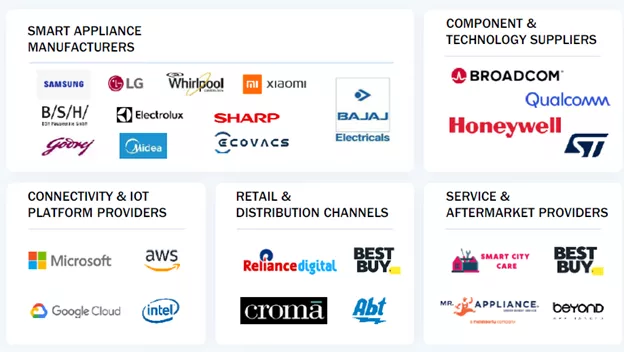The automated optical inspection market was valued at USD 598 million in 2020 and is projected to reach USD 1,660 million by 2026. It is expected to grow at a CAGR of 20.8% during the forecast period. Advantages of AOI over other inspection methods, upsurge in the demand for consumer electronics amidst pandemic, rising need for miniature, high-speed PCBs, demand for higher productivity by electronics manufacturing services (EMS) companies, and growing demand for electronics in automotive sector are contributing to the growth of the automated optical inspection market. Advent of SMART technology, newer applications of AOI systems apart from PCB inspection, and growing demand for AOI systems for inspection of IC substrates act as a growth opportunity for the market players.
Download PDF
Brochure:
https://www.marketsandmarkets.com/pdfdownloadNew.asp?id=179056156
Automated optical inspection (AOI) is an automated
visual inspection methodology used primarily to test for defects in printed
circuit boards (PCBs). These systems are used to test and evaluate PCBs for
potential detection of defects such as soldering defects, component defects,
ball grid array (BGA), surface defects, dimensional defects, component
placement defects, and chip-scale packaging (CSP) defects. With the advent of
miniature electronics and advancements in PCBs, the circuits become more
complex, which makes it almost impossible to manually inspect the boards, and
thus, AOI plays an important role in checking these boards. It helps attain the
desired product quality in the production line by keeping the cost as low as
possible. The system is superior and less time-consuming than manual
inspection.
The AOI market has historically been subjected to
significant growth due to the rise in demand for AOI systems in consumer
electronics, automotive, and industrial electronics sectors. However, the
outbreak and spread of the COVID-19 pandemic have resulted in a decline in this
growth rate.
Based on the type, 3D AOI systems to account a larger share
during 2021–2026
The
3D AOI system market is expected to be dominant and faster during the forecast
period. Large-scale manufacturing units primarily make use of 3D AOI systems.
3D AOI systems have high operational costs and use complex programming codes
for functioning but are more efficient and sensitive at detecting defects and
faults than 2D AOI systems. 3D AOI systems can detect faults in PCB substrates
as well as in the ball grid array (BGA), which makes them superior to 2D AOI
systems. Further, the ability to quickly inspect defects in tall components,
significant reduction in false call rates, and ability to provide volumetric
data of components under inspection make 3D AOI systems an ideal choice for
electronic manufacturing service (EMS) providers in the coming years.
Inline AOI systems to grow at a higher CAGR during the forecast
period
The
inline AOI system is expected to be a larger and faster-growing market during
the forecast period. Inline AOI systems offer a higher rate of PCB inspection,
which is ideal for electronics manufacturing companies involved in high-volume
production. Hence, most large manufacturing companies install multiple inline
AOI systems in their production lines to speed up the inspection process.
Several key manufacturers are making innovations and developments in inline AOI
systems. For instance, in March 2021, Viscom developed the new Heavy Flex
handling solution. The Heavy Flex handling options are available for Viscom's
S3016 ultra AOI system for optical inline 3D inspection. Also, in June 2020,
GOEPEL launched two new AOI systems. The 3D XE series of AOI platforms is
characterized by low acquisition costs whilst still delivering full 3D
inspection functionality. The series consists of the standalone system Basic
Line · 3D XE and the inline system Advanced Line · 3D XE.
Consumer Electronics industry accounted for the largest share of
the automated optical inspection market during the forecast period
The
consumer electronics segment is expected to hold the largest share of the AOI
system market during the forecast period. The miniaturization of electronic
gadgets has further increased the complexity of internal circuits and
components. To efficiently inspect complex PCBs of small and compact consumer
electronic devices, manufacturers are increasingly using advanced AOI systems
to offer high-quality products to customers. The trend of having one device
with multiple functionalities has made modern-day electronic devices such as
smartphones, laptops, and wearables more complex in architecture. The increased
complexity of these devices requires highly advanced AOI systems for
inspection. Further, with the rise in the adoption of 3D inspection technology,
AOI systems are going to play a vital role in maintaining the high-quality
standards of these complex consumer electronic devices.
Speak to Analyst:
https://www.marketsandmarkets.com/speaktoanalystNew.asp?id=179056156
APAC to account for
the largest market share during the forecast period
APAC is the leading region for global PCB
production, with countries such as China, Taiwan, Japan, and South Korea at the
forefront. The increase in high-volume manufacturing of PCBs creates a demand
for AOI systems with faster inspection speed. The APAC electronics industry has
become a world-class innovation-driven hub for production as a result of
low-priced skilled labor, business-friendly environment, low production cost,
and growing demand for electronic products in the region. The growth in the electronics
industry has enabled the APAC AOI market to grow at a significant rate.
Key Market Players
Koh Young (South Korea), Test Research, Inc. (TRI)
(Taiwan), Omron (Japan), Camtek (Israel), Viscom (Germany), Saki Corporation
(Japan), Nordson (US), KLA (US), Cyberoptics (US), and Goepel Electronics
(Germany) are among the major players in the automated optical inspection
market.

No comments:
Post a Comment